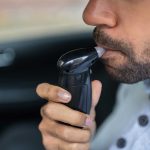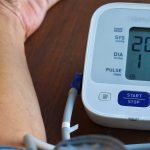- Symptoms Of Alcohol Poisoning?
- Dangers Of Alcohol Poisoning
- Prevalence Of Alcohol Poisoning
- Treating Alcohol Poisoning
Alcohol poisoning, or alcohol overdose, occurs when a dangerous amount of alcohol is consumed.
As a depressant, heavy alcohol use blocks the signals between brain cells and slows down your central nervous system activity. As a result, your thinking, breathing, heart rate, and blood pressure can decrease to dangerous levels.
Binge drinking, which is any alcohol consumption that raises your blood alcohol concentration (BAC) to .08% or more in a short period of time, increases your risk for alcohol poisoning.
Symptoms Of Alcohol Poisoning?
Drinking too much alcohol can lead to nausea and vomiting, an early sign of alcohol overdose.
Other symptoms or signs of alcohol poisoning include:
- confusion, disorientation, or stupor
- slow breathing
- shallow or irregular breathing
- low heart rate
- clammy skin
- chills or low body temperature
- pale skin or blue-tinted skin, fingernails, or lips
- loss of bowel or bladder control
- passing out/loss of consciousness
- inability to wake up
- seizures
- coma
Dangers Of Alcohol Poisoning
An alcohol overdose can be deadly. It can also lead to lasting physical harm by:
- impairing the gag reflex, causing you to choke on your own vomit and asphyxiate; this can result in death or permanent brain damage from lack of oxygen
- suppressing your breathing (respiratory depression)
- causing severe dehydration
- triggering dangerous seizures due to low blood sugar levels (hypoglycemia)
- triggering a heart attack (cardiac arrest)
- lowering body temperature (hypothermia), especially if outdoors
Prevalence Of Alcohol Poisoning In The United States
According to CDC data, six Americans per day or roughly 2,100 per year died from alcohol poisoning in 2015. In the years since, this figure has increased along with a general increase in substance use and alcohol consumption.
In addition, alcohol is a common contributing factor in many drug overdose deaths, especially with opioids like heroin and stimulants like cocaine or methamphetamine.
While underage and recently-of-age Americans face a high risk of alcohol poisoning as a result of social drinking games and party scenes, no adult age group is immune. In fact, most alcohol poisoning deaths are reported among middle-aged adult males with a pattern of heavy drinking.
Treating Alcohol Poisoning
A cold shower, cup of coffee, or slice of bread won’t stop or reverse an alcohol overdose. However, there are steps you can take to help:
- call for medical help immediately
- stay with the person and try to keep them awake by speaking with and comforting them
- roll an unconscious person on their side to reduce the risk of choking on or breathing in their own vomit
- do not give them food or drink or try to help them stand up and walk
Once medical attention arrives, the person will likely be given respiratory support to help them breathe as well as intravenous fluids for glucose, vitamins, and hydration.
A stomach pump might also be used to clear any excess alcohol from their gut before it can be absorbed into their body.
If you or someone you love lives with alcohol use disorder, please contact Northeast Addictions Treatment Center to learn how we can help.
Alcohol Addiction Treatment Programs
-
Outpatient Drug Rehab for Addiction Treatment
Taking advantage of outpatient rehab can help a person overcome the substance abuse lifestyle, while gaining access to group counseling, individual therapy and classes. People in recovery can learn skills to help manage stress...
-
12 Step Program for Addiction Treatment
-
Substance Abuse Group Therapy
-
Intensive Outpatient Program for Substance Abuse (IOP)
-
Day Treatment – Partial Hospitalization (PHP)
-
Dual Diagnosis Treatment
Sources
Written by
Northeast Addition Editorial Team
©2024 Northeast Addition Center | All Rights Reserved
This page does not provide medical advice.






